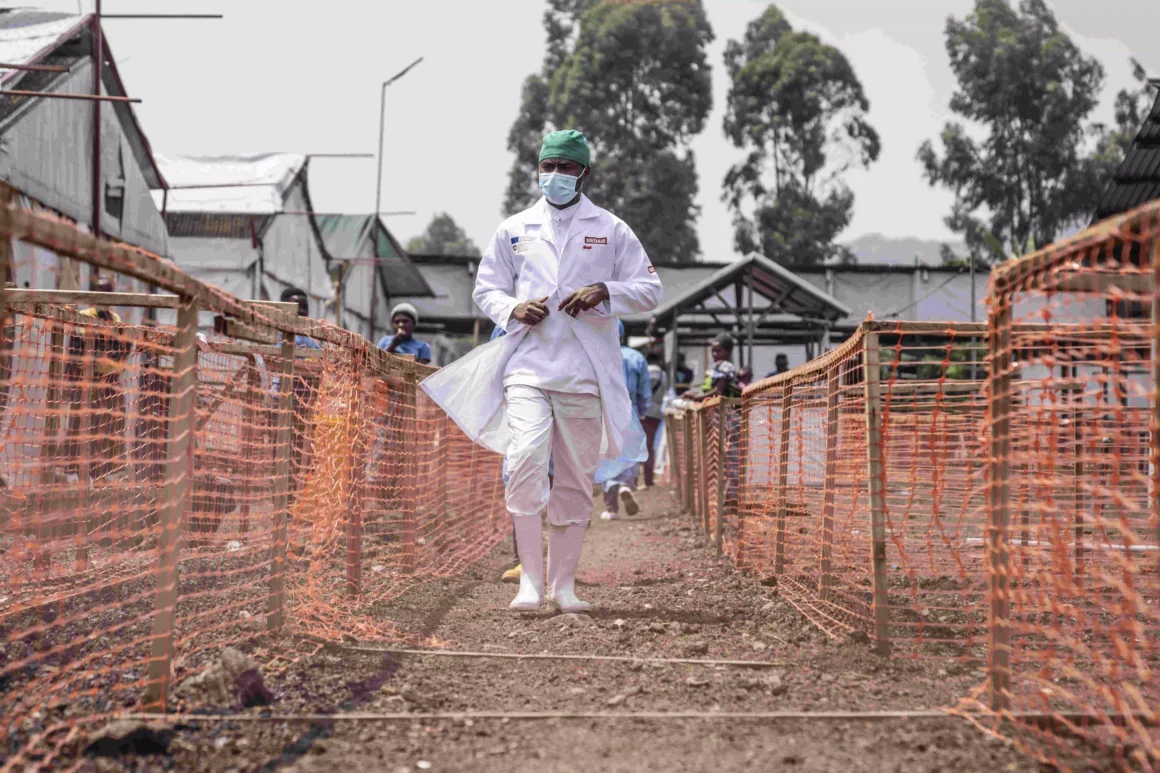New Delhi, 29 November 2024: The Africa Centres for Disease Control and Prevention (Africa CDC) has expressed cautious optimism about the trajectory of the mpox (formerly monkeypox) outbreak across the continent, forecasting that cases may begin to plateau in 2024. This development comes as coordinated public health efforts, including vaccination campaigns and increased public awareness, gain momentum in controlling the virus’s spread. However, the agency has emphasized the importance of sustained vigilance and resource allocation to ensure long-term containment of the disease.
Mpox Outbreak May Plateau in 2024, Africa CDC Predicts
The Africa Centres for Disease Control and Prevention (Africa CDC) has expressed cautious optimism about the trajectory of the mpox (formerly monkeypox) outbreak across the continent, forecasting that cases may begin to plateau in 2024. This development comes as coordinated public health efforts, including vaccination campaigns and increased public awareness, gain momentum in controlling the virus’s spread. However, the agency has emphasized the importance of sustained vigilance and resource allocation to ensure long-term containment of the disease.
Mpox in Africa: A Public Health Challenge
Mpox is a zoonotic viral disease, primarily spread through close contact with infected individuals, contaminated surfaces, or animal hosts. While endemic in parts of Central and West Africa, the disease garnered international attention during a global outbreak in 2022 that saw cases rise dramatically in non-endemic regions. In Africa, the outbreak posed additional challenges due to limited access to vaccines and diagnostic tools, as well as existing health infrastructure pressures caused by other infectious diseases like malaria, HIV, and COVID-19.
In 2023, Africa accounted for a significant proportion of global mpox cases. Regions with weaker healthcare systems and inadequate disease surveillance faced higher infection rates, underscoring the need for comprehensive intervention strategies.
Progress in Tackling Mpox
Africa CDC’s forecast for a plateau in mpox cases is rooted in several key developments:
Increased Vaccination Coverage
Vaccination efforts have expanded in many African countries, particularly in high-risk populations such as healthcare workers and individuals in areas with active outbreaks. With global partnerships enabling vaccine donations and local governments prioritizing immunization programs, the population’s immunity to mpox is gradually improving.
Enhanced Public Awareness
Public health campaigns have played a critical role in educating communities about mpox transmission, symptoms, and preventive measures. By encouraging early detection and isolating suspected cases, governments and healthcare workers have reduced the risk of widespread transmission.
Strengthened Surveillance Systems
Investments in disease surveillance have helped identify outbreaks quickly and respond with targeted interventions. Enhanced laboratory capacity has also improved diagnostic accuracy, enabling faster treatment and management of cases.
Challenges Remain
Despite the progress, significant challenges persist in the fight against mpox:
Limited Access to Resources: Vaccine availability remains uneven across African nations, with some regions still struggling to secure sufficient doses.
Stigma and Misinformation: Social stigma surrounding mpox, particularly due to its association with sexual transmission in some cases, has hindered reporting and treatment in certain communities.
Overburdened Health Systems: Many countries in Africa are still grappling with resource constraints and healthcare worker shortages, limiting their capacity to respond effectively to outbreaks.
The potential stabilization of mpox cases in 2024 offers hope for the region. It signifies that the interventions in place are beginning to yield results. However, public health experts warn that a sustained decline will require unwavering commitment from governments, healthcare providers, and international partners.
As Africa continues to confront its unique public health challenges, the mpox outbreak serves as a reminder of the importance of preparedness and equitable healthcare access in mitigating the impact of infectious diseases. Many countries in Africa are still grappling with resource constraints and healthcare worker shortages, limiting their capacity to respond effectively to outbreaks.

